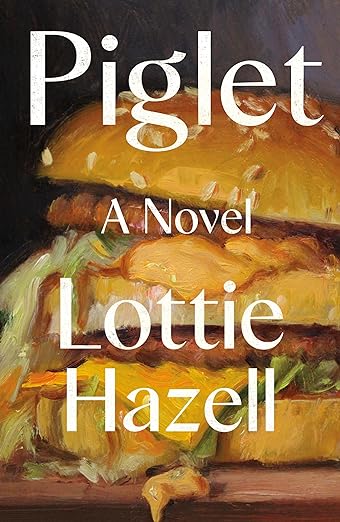A little over two years ago, Curtis Sittenfeld came to Politics & Prose here in D.C. to read from her (then) new novel, American Wife. I enthusiastically went to the reading, took a lot of notes, and wrote this post about her talk. She answered a lot of questions about the book – a fictionalized account of the life of Laura Bush – and her answers were fascinating. I left knowing that I wanted to read the book, but for some reason I was daunted by it. It's a long book, to be sure, but I also feared it would be boring. How could the life of a modest and unassuming woman – one whom I thought I knew - be worth spending 550 pages reading about? So I let the book languish at the bottom of my TBR pile, despite the fact that I loved Sittenfeld's Prep so much that I rationed out the pages so that I wouldn't finish it too quickly.
Well, that was a mistake. I finally got to American Wife, and it was an excellent book. Not boring at all, as I feared, but compelling and beautifully written. As I noted above, it's the fictionalized account of the life of Laura Bush. In the book, she's Alice Blackwell, and while she and her husband Charlie hail from Wisconsin instead of Texas, there's no mistaking who they are supposed to be. George W.'s presidency is the same, down to the flipflopping of Florida's votes on election night, the Svengali behind the scenes, and the older, hawkish VP.
Yet as far as Laura Bush's - er, Alice Blackwell's – life is concerned, Sittenfeld says that outside of some tentpole events (the car accident she had as a senior in high school, her life as a children's librarian, her marriage to Charlie), Sittenfeld made the rest of it up. She definitely did her research, but Alice's internal dialogue, as well as the nuances of her relationship with her husband, are the result of Sittenfeld's creative mind.
Just like in Prep, Sittenfeld creates a deeply sympathetic heroine in American Wife. Charlie is flawed – at times terribly selfish and self-absorbed – but the reader can at least understand how someone like Alice ended up with someone like him. American Wife is ultimately the depiction of a marriage – albeit that of a couple who ultimately ends up living at 1600 Pennslyvania – and the sacrifices and secrets spouses make and keep to preserve their unions, for better or worse.
I had a few issues with the ending. I will leave it at that, so that I don't reveal too much. I think Sittenfeld pushed her own political agenda a little too strongly, which detracted from the character and story she had so carefully constructed. But that was just one part of a much larger book.
I feel like I am not doing American Wife justice in this review. It's a hard book to reduce to a few paragraphs – it's so sweeping and detailed. It was one of my favorite reads of 2010, and I highly recommend it.
One note: I went back and forth between the audiobook and the paper version of American Wife. I can't recommend the audiobook. The narrator's voice borders on robotic at times, and it bothered me. She also read unecessarily slowly. I understand why they picked her – she has a vaguely southern, proper sound to her voice – but I found it kind of grating.
Would love to hear from others who have read this!










About Me
I have been blogging about books here at Everyday I Write the Book since 2006. I love to read, and I love to talk about books and what other people are reading.